Eco Green: Accepting Environmental Excellence
The need for sustainable solutions has never been more pressing as we confront the always-expanding problems of pollution, environmental damage, and climate change. The change toward an Eco Green lifestyle marks a movement for a better earth and a cleaner future for the next generations, not only a trend. Adopting environmentally friendly technologies, goods, and behaviours not only helps to protect valuable resources but also provides many advantages for people and companies. When we think about the long-term effects of our decisions, implementing Eco-green solutions is turning into a crucial point of reference for the search for a sustainable future.
The Expert of Sustainable Approaches
From cutting waste and saving water to selecting sustainable materials and backing green innovations, eco-friendly behaviours cover a broad spectrum. Every little adjustment we make could significantly affect the surroundings. For example, choosing reusable substitutes and cutting back on plastic use will help greatly lower the pollution in our landfills and seas. Giving products produced from recycled or biodegradable materials priority helps ease the demand for natural resources and lessen the negative impacts of manufacturing techniques.
Green Technologies: Towards Sustainability One Step Ahead
The emergence of green technologies is changing our means of living and employment. Among the several ways technology is propelling the environmentally friendly movement ahead are solar energy, electric cars, and energy-efficient appliances. These developments provide long-term financial savings in addition to lessening our carbon footprint. Demand for sustainable technologies will keep rising as more people and companies choose greener energy sources, therefore generating a beneficial knock-on effect on the surroundings.
Creating a Sustainable Future Together
Changing to an Eco Green lifestyle calls for both group work and dedication. Supporting environmental projects depends critically on governments, companies, and people as well as on one another. Choosing green substitutes, supporting environmental laws, and teaching others about sustainability will help to foster a society of eco-aware consciousness that will help the earth and all of its occupants.
To sum up, it is impossible to overestimate the need to live in an environmentally sustainable way. It is abundantly evident that the decisions we make now will determine the fate of our world as we keep seeing the changes resulting from implementing eco-green policies. Every action counts—from sustainable consumption to waste reduction to energy-saving technologies. It is time to welcome the transformation and provide a sustainable legacy for the next generations. Allow Eco Green to serve as reference toward a better, cleaner, and more sustainable planet.























